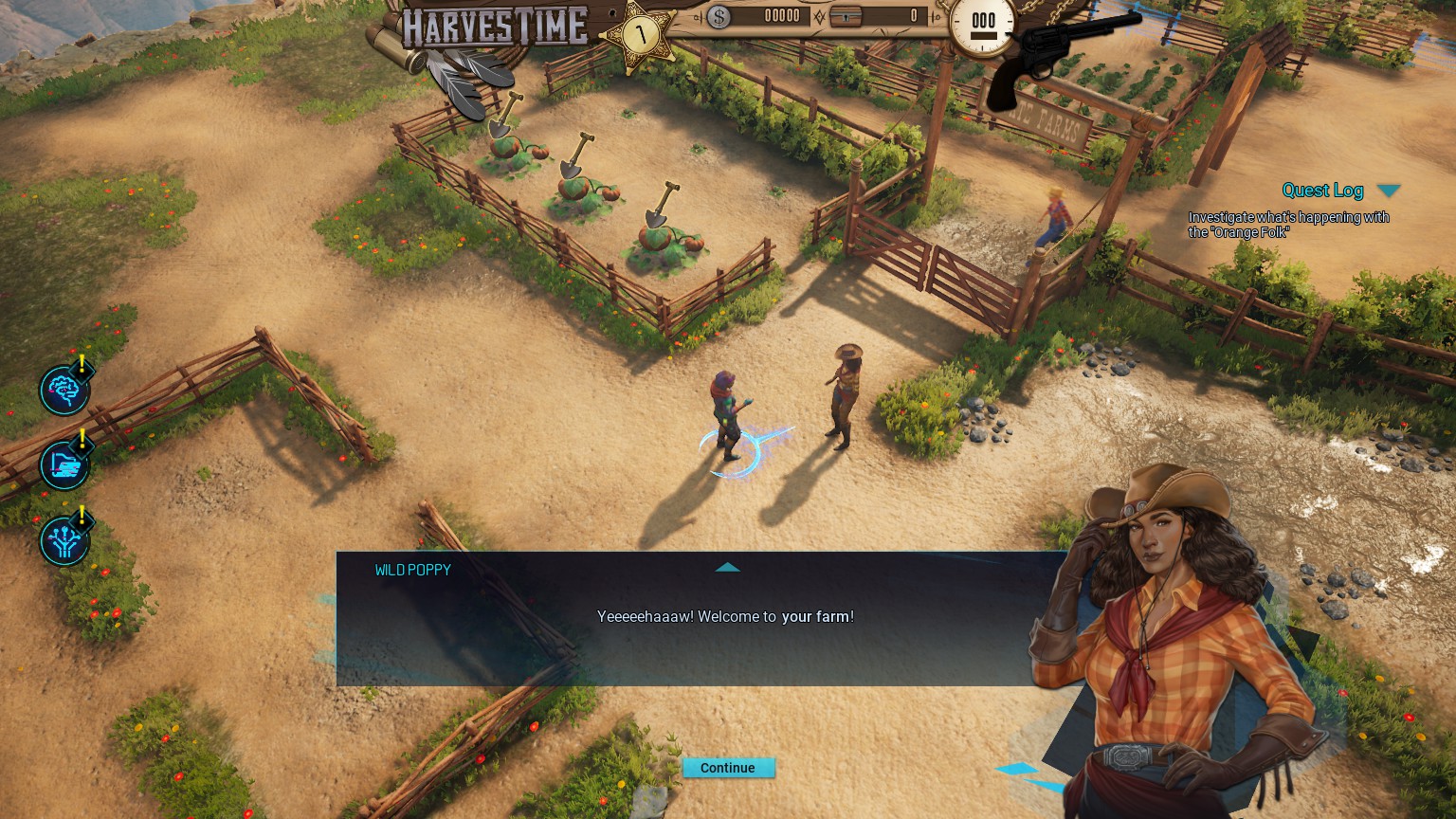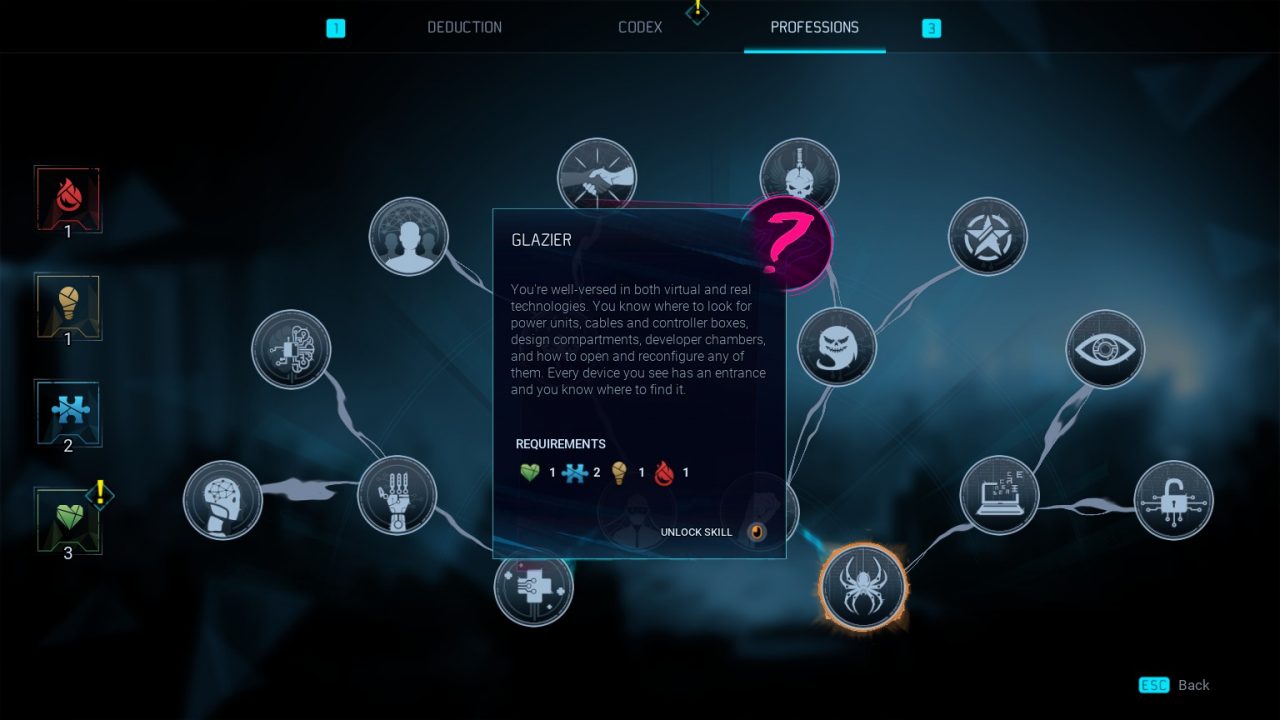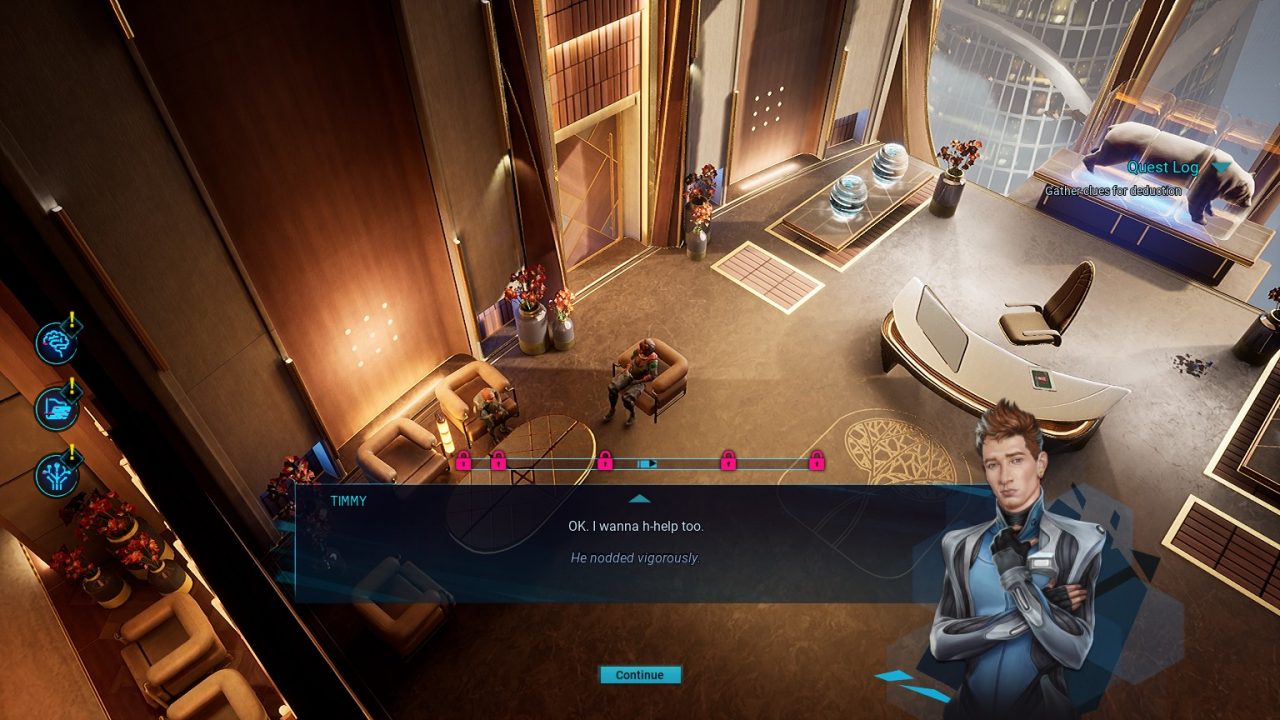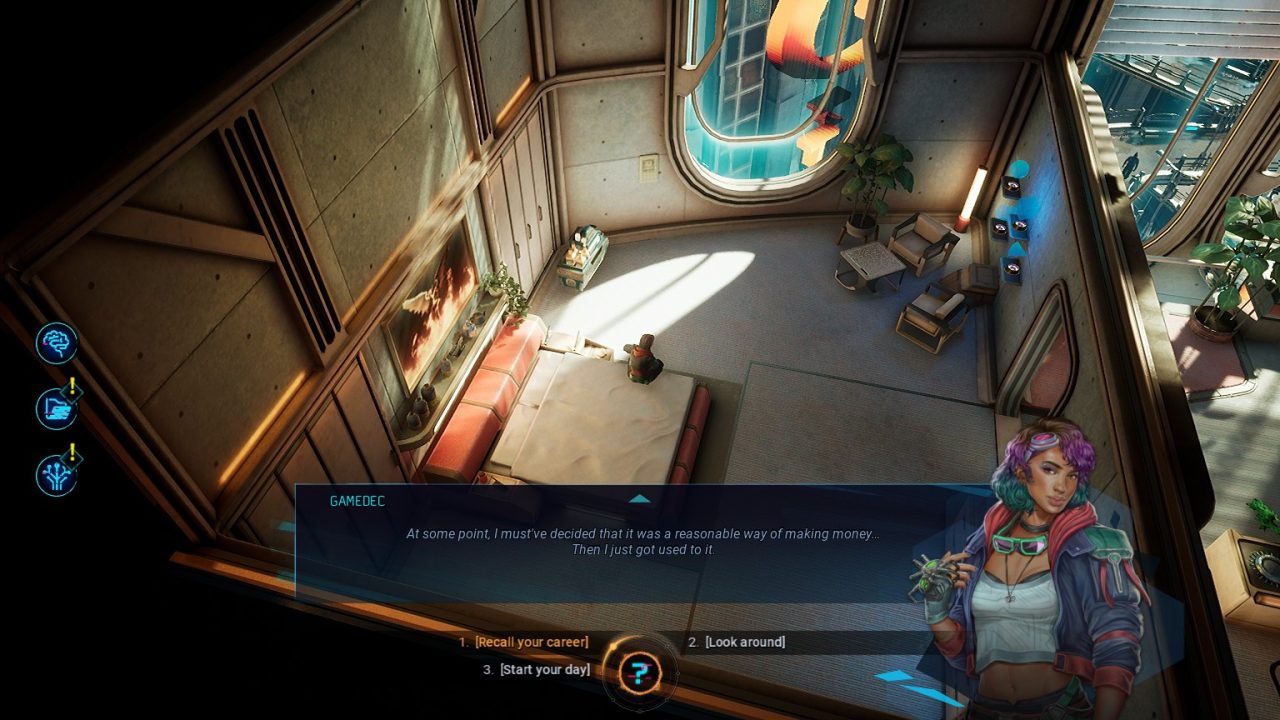When every decision has a lasting impact and people can literally be anything or do whatever they want, then what is the actual truth behind “living” as we know it? Would you prefer living in a bleak reality or a virtual space tailored to your preferences? Are these two worlds even truly separate?
That is the premise behind Gamedec, a cyberpunk RPG where players take on the role of a game detective (“gamedec”). The real world, called “Realium,” is interconnected with a myriad of virtual worlds, referred to as “Virtualium.” The two are connected to the point where the lines between them are almost constantly blurred, so whatever happens in a video game can very much have a significant effect on someone’s life. It is up to you as a gamedec to investigate and solve cases that take place in the virtual that invariably connect back to reality in quite illuminating ways. In a world where perceptions are so fluid, nothing is truly what it seems. The mysteries you encounter connect to a much larger one that might just change your entire point of view.

Gamedec has a fascinating gameplay structure that focuses on interactivity and decision-making. Pretty much every choice made throughout a single playthrough will alter the story, even if only in a minuscule way like a character’s reaction to that choice. These minor branching points combine to shape a much larger whole, ultimately influencing the game’s direction. It is a truly fascinating and evolving storytelling system, giving players a great deal of freedom in their approach to most events. There are no real “right” or “wrong” responses to a scenario, and the lack of judgment in Gamedec makes for a refreshing change from more stark morality systems in other RPGs. I found myself always wanting to play that much more whenever I turned the game on, if only to figure out just how my recent actions impacted later story events.
As a gamedec, players take on cases in Realium that they often have to solve in a Virtualium virtual world. These environments range from what appears to be a benign farming sim to an adult-only world where pretty much anything goes. After logging into a game world, you’re bound by its rules unless you do some helpful hacking or until you solve the mystery and find out how what is going on in the game affects reality. There is no combat in Gamedec, as even the virtual spaces that permit violence are shaped by your choices rather than combat encounters. For instance, a gun fight simply involves you choosing to fire a gun as a dialogue option instead of any kind of battle system coming into play. The narrative interactivity of Gamedec is entirely in a player’s control at all points during the plot, with skills/traits that “level” and unlock based on how many points your actions afford. Scalpel, for example, is a special profession choice skill that utilizes a player’s medical knowledge and provides a specific dialogue choice if unlocked.

Gamedec utilizes the mouse and keyboard in its control schemes: you move your character on the map and interact with people/objects by clicking the mouse. Once I got the hang of what I was supposed to do with the control mechanics, it was easy enough to play the game thanks to handy tutorial screens. While some decisions were obvious in how they might impact the story, several weren’t quite so clear-cut. Early on during my first case, I encountered a hostage situation and chose to follow through with the demands of the hostage taker, only for that decision to somehow count as me “running away” from the case and ultimately not receiving a positive outcome. I was genuinely confused about what happened and how my choice had led to that point in the narrative. It wasn’t enough to cause me to stop playing that particular playthrough, but a bit more clarity on how certain decisions could play out or be perceived probably would’ve been beneficial to the overall experience.
As a gamedec, you gather clues and information based on what you do. A special deduction menu allows you to collect the intel and piece together how you interpret what you’ve gathered, with some deduction choices available depending on the type of data you’ve attained. However you decide to process your findings has a lasting impact on the story from that point, adding another layer to the game’s evolving storylines. It makes for a truly impressive scope, especially since the system is set so there are no incorrect deductions. A finalized deduction will often open a new mystery that needs to be solved in much the same fashion, spiraling out into the larger overall mystery at play.

In terms of plot, there isn’t much I can fault Gamedec for. It is a well-crafted sci-fi tale for those who enjoy the cyberpunk genre, especially once it hits its strides in the game’s later portions. That being said, it is something of a narrative slow burn. You do need a level of patience to reach that point. Nevertheless, I found the ways the plot branched out and evolved as a direct result of your choices to be quite intriguing, and the RPG “skills” at play—despite the lack of combat—were clever. Unfortunately, I didn’t get a strong sense of many supporting characters since so many aspects of them change along with the story beats, though how you can shape your gamedec character makes them at least stand out.
Visually, the 3D graphics and backdrops are nicely implemented. I felt that overall the visuals captured the cyberpunk aesthetic the title was going for. Every game world looked distinct from the others too, and I liked how the UI “interface menu” showing your stats changed accordingly when you were In Virtualium. The character artwork for important characters was colorful and rather eye-catching as well. The sound direction was rather fitting for every scene and game world, and limited voice acting at certain points worked well.

Gamedec ultimately boils down to a creative and interesting gameplay experience initially hampered by technical and localization issues. A significant update was recently applied to the game that fixed most of the freeze glitches and problems with the English localization feeling incomplete, so I have amended my review score accordingly. I can now say that the English script approaches excellence, with only a few minor errors here and there to contend with: a much different case from when I initially played the game. I would still recommend saving frequently whenever possible due to how quickly the narrative can evolve and because the autosave feature isn’t quite active enough to take that into account.
There’s a lot in Gamedec that’s praiseworthy. I love how the game constantly evolves based on decisions made throughout it, and the story itself developed into something truly memorable as it progressed. Those who want to play an engaging cyberpunk sci-fi RPG with an emphasis on decision-making may very well want to try Gamedec out, especially now that it is updated and more polished.


